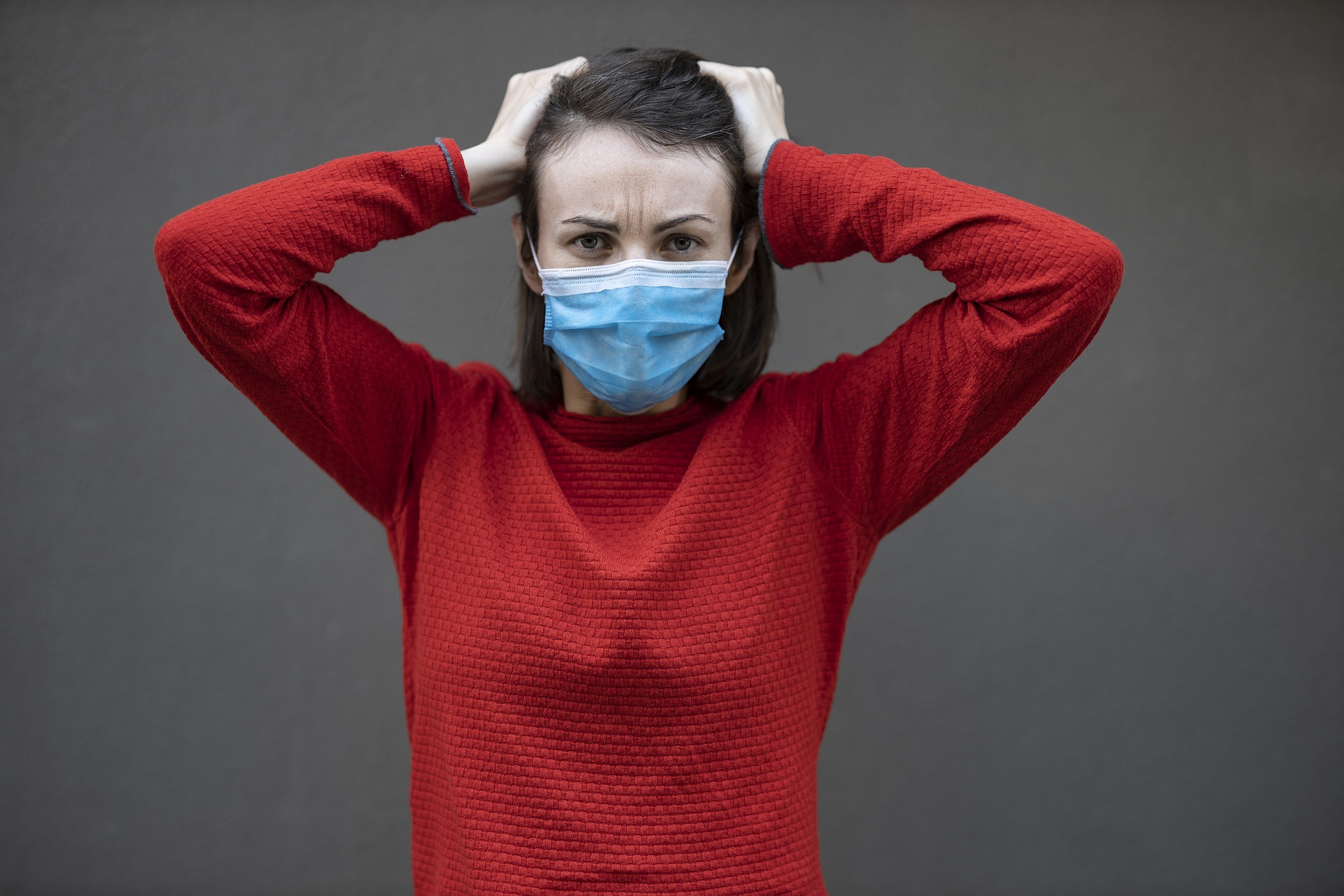
You’ve probably heard COVID-19 referred to as the “novel” coronavirus, which indicates some important distinctions about the disease. “Novel” means it’s a new strain of the corona viruses, and as a new virus that in turn means there’s still much that’s not known about the disease.
In response to the pandemic, a wide array of infectious disease specialists and medical professionals are urgently working around the clock try to understand how COVID-19 affects us. However, it also means that in the midst of all the uncertainty many of us have about the disease, misinformation and myths about COVID-19 are running rampant, either online or by word-of-mouth.
For example, some people are claiming that holding your breath for 10 seconds without coughing means you don’t have coronavirus, or that drinking alcohol will prevent you from getting it.
Neither of these are true of course, but in our world of social media and instant sharing, almost any information—whether true or false—can spread as fast as, well, a virus.
For example, so many people were sharing the myth about drinking to combat the virus that the World Health Organization had to debunk the alcohol myth. In fact, WHO reports that, “Alcohol use, especially heavy use, weakens the immune system and thus reduces the ability to cope with infectious diseases.”
Thankfully, that myth is dying down somewhat, but there are many more that persist. Sharing accurate information is one of the best things you can do to help slow the spread of COVID-19, besides regular handwashing, avoiding touching your face, and practicing social distancing.
That said, let’s take a look at 4 of the more persistent, and concerning, myths going around about COVID-19 that could be hurting you or your loved ones.
4 Harmful Myths About COVID-19
Myth #1: I’m not old and I’m healthy, so I won’t really get sick if I do get infected.
Fact: We are continually seeing evidence showing that older people are not the only ones to become seriously ill, or die, from COVID-19. Coronavirus can affect anyone, regardless of age or overall health, and the results can be severe if not fatal.
While it is true that the elderly and people with chronic health conditions—such as respiratory illnesses, diabetes, heart disease, and high blood pressure—are more vulnerable and tend to become more ill with coronavirus, there are all too many cases of healthy people in their 20s, 30s, or 40s who have passed away from coronavirus. And there are even more who live through the virus, but experienced severe symptoms and suffer serious challenges with recovery.
On top of that, those who are infected, regardless of their age, can spread the virus easily to others—even if they never show any symptoms of infection. The bottom line is that no one is risk-free. Don’t assume that your age, or your current health condition, shields you from how seriously the disease could affect you, much less those around you.
Myth #2: COVID-19 is not as bad as the flu.
Fact: COVID-19 is different from the flu in 4 crucial ways, spanning the type and severity of symptoms and how our bodies respond to the virus.
First, COVID-19 appears to be more contagious than the flu. One single person can infect many people, so that the spread becomes exponential rather than just one-to-one.
Second, symptoms of the flu tend to come on suddenly and get worse within a day or two. Symptoms of COVID-19 can be mild and much more gradual at first, increasing in severity over several days or, in many cases, even weeks. This means that people are very likely spreading germs unknowingly over a longer period of time before they suspect that they are ill.
Third, flu-related deaths are more often caused by secondary infections like pneumonia or other complications. On the other hand, what we are learning about COVID-19 is that most deaths are stemming from the body’s immune response to the virus itself. Because this is a new virus, we have no immune response to combat it. This makes it extremely difficult to predict how any one person—again, regardless of age or overall health—will respond to the virus and to treatments.
Fourth, because we haven’t encountered this particular coronavirus before, we not only have no immunity we also have no vaccine yet, and no effective antiviral treatment. We have all three of those factors for the flu.
Myth #3: Social distancing doesn’t apply to me.
Fact: This is a persistent myth that has multiple variations, such as:
- I don’t have any symptoms, so it’s safe for me to go out
- No one around me is coughing, so I assume they’re not infected
- There’s no stay-at-home order in area, so there’s no need for caution
- There aren’t that many cases in my town, so I don’t need to worry
Each one of these assumptions is false, not to mention dangerous.
According to the Centers for Disease Control and Prevention some people infected with the coronavirus may not show any symptoms, meaning they might not even know they have COVID-19.
Not knowing whether or not they have coronavirus does not mean they aren’t contagious. Someone without symptoms could still easily be spreading coronavirus around, whether by being in close contact with other people or by touching things like doorknobs or faucet handles.
Plus, many places in the U.S. are experiencing shortages or lags in testing, which means the true number of cases is still unknown. The result is that a lot of infected people might be walking around in public, not realizing they’re spreading the virus.
That’s also why no city, part of town, or neighborhood can be considered completely clear or “safe,” even if few confirmed cases have been reported there yet.
Myth #4: Heat can kill the coronavirus.
Fact: This myth spans a wide range of falsehoods that just don’t seem to be subsiding. Contrary to what you may have heard, taking a hot bath or using a hair dryer on high heat on your hands or aimed up your nose will not kill the coronavirus, neither inside nor outside of your body.
In addition, high-heat ultraviolet light aimed inside the body has not been substantiated as a viable treatment at this time.
This myth about heat sources in general may stem from the fact that high temperatures during the cooking process can kill bacteria that cause food-borne illnesses. But trying to raise your internal temperature by taking a hot bath or exposing your body high temperatures will not destroy the coronavirus, or other infectious diseases for that matter.
Likewise, those hand dryers in public restrooms are not effective in killing coronavirus. Washing your hands thoroughly and regularly, however, is still the most important thing you can do to help prevent the spread of both coronaviruses and other infectious diseases.
Key Takeaway: Facts Vs. Myths Of COVID-19 :
Don’t underestimate your personal risk for coronavirus—or put others at risk—based on a false claim or myth. And please, don’t share information—either online or in person—if you’re not absolutely sure it’s credible.
It’s always a good idea to check with reputable sources before sharing any information about COVID-19, including The U.S. Centers for Disease Control and Prevention (CDC) and the World Health Organization (WHO). Both are centralized authorities that are working to provide the most up-to-date factual information about COVID-19, including the latest developments on prevention and treatment of the coronavirus.
We can all work together to prevent the spread of COVID-19. In the meantime, know that our physicians and staff are here to help you.
If you suspect you may have symptoms of COVID-19, such as fever or cough, please call your primary care physician, or the nurse triage line at either Deaconess Midtown Hospital (812-450-6555) or St. Vincent-Evansville (833-978-0649).
If you have symptoms such as difficulty breathing or a high fever that’s not responding to over-the-counter medicines like Tylenol, call 911.
Established in 1969, Evansville Surgical Associates celebrates 50 years of providing leading-edge comprehensive and compassionate surgical care. Learn more about our physicians and our practices by visiting our website, or by calling us at 812.424.8231 or 800.264.8231.



